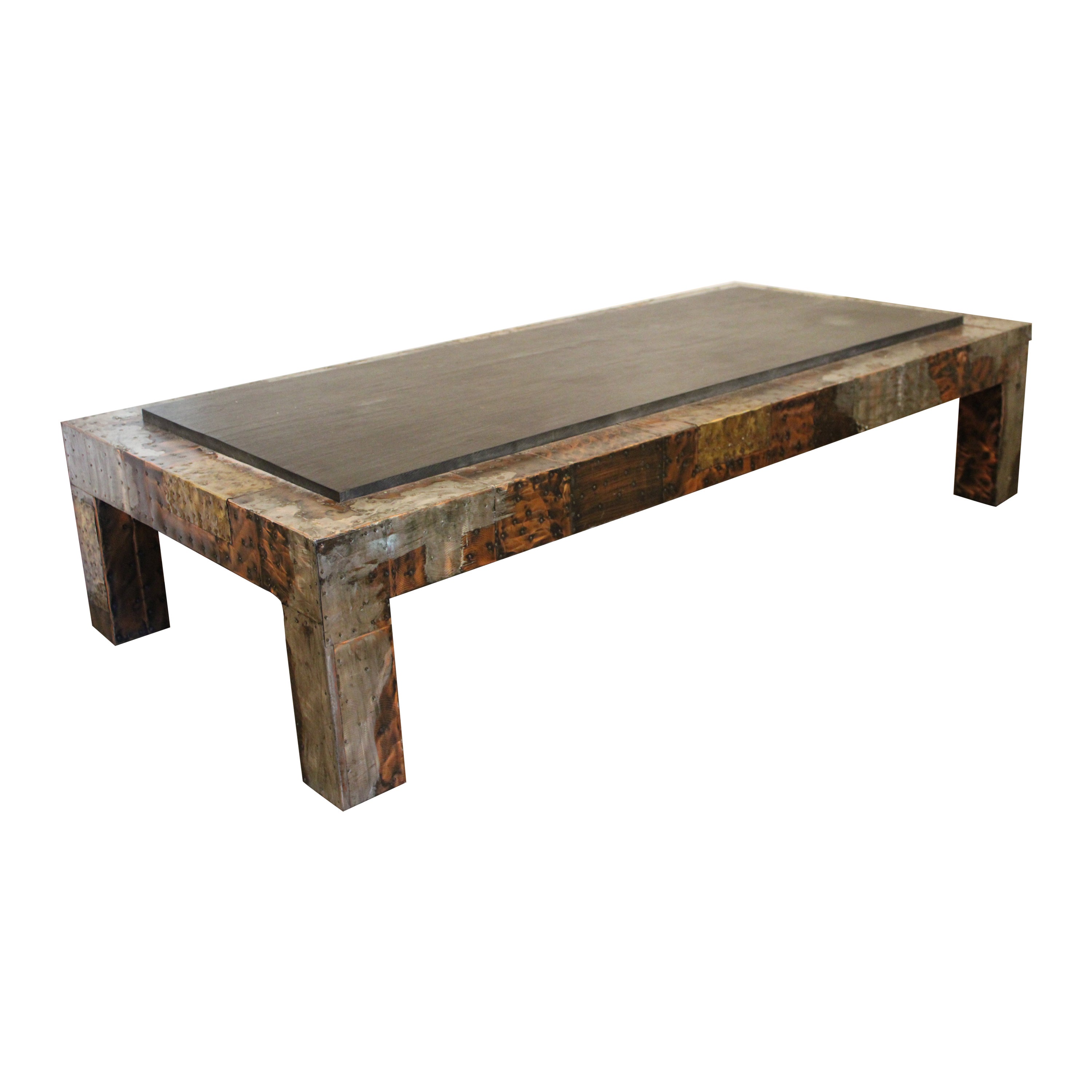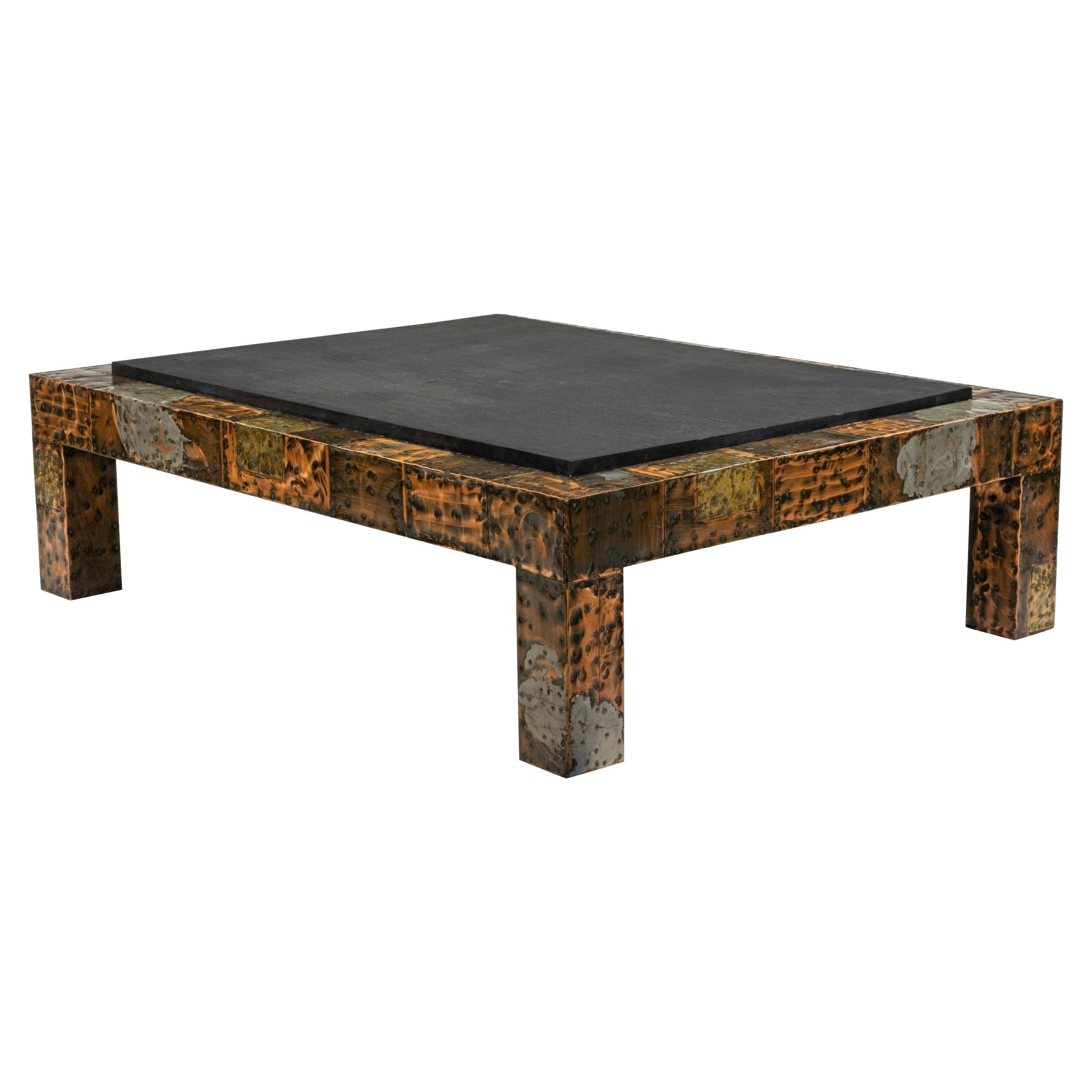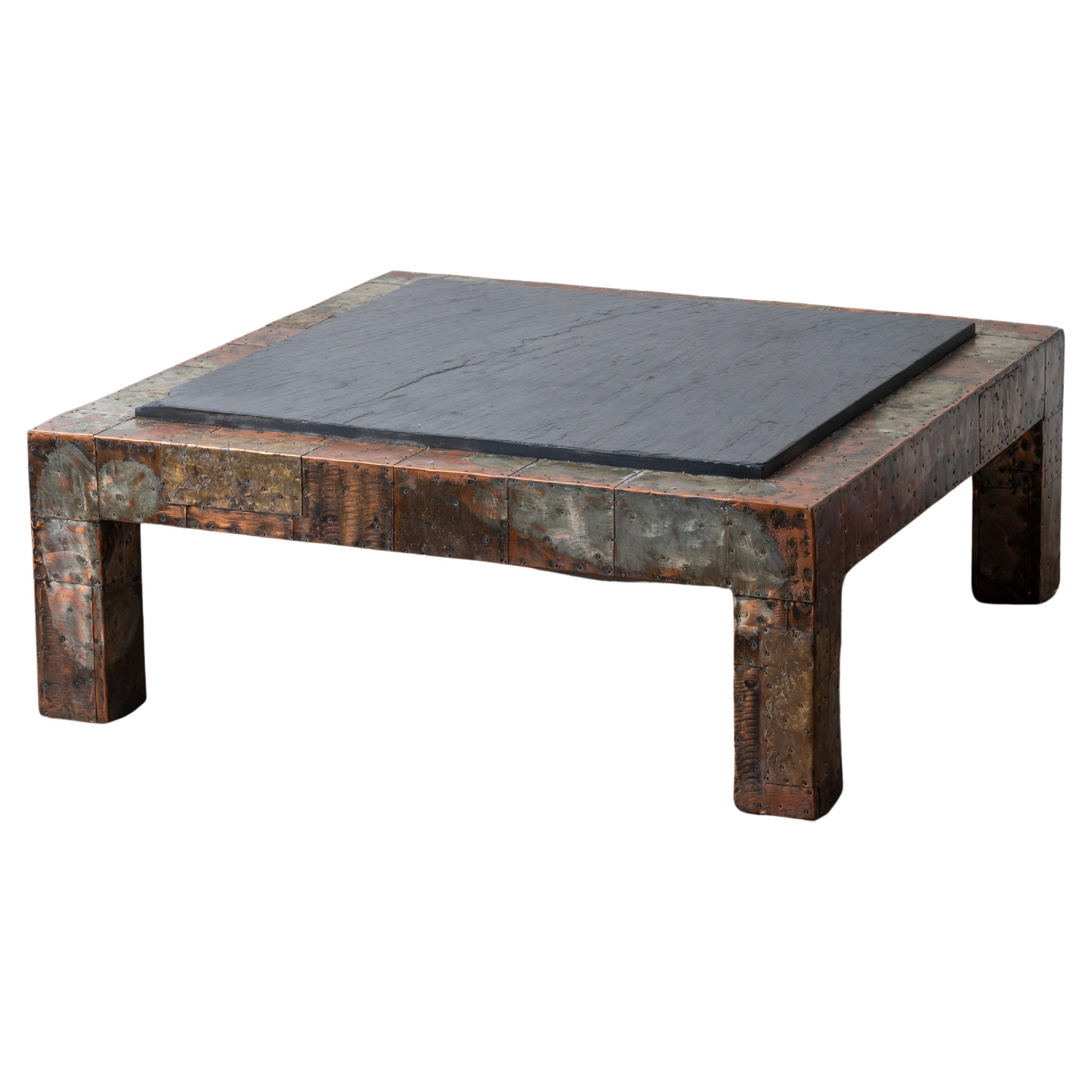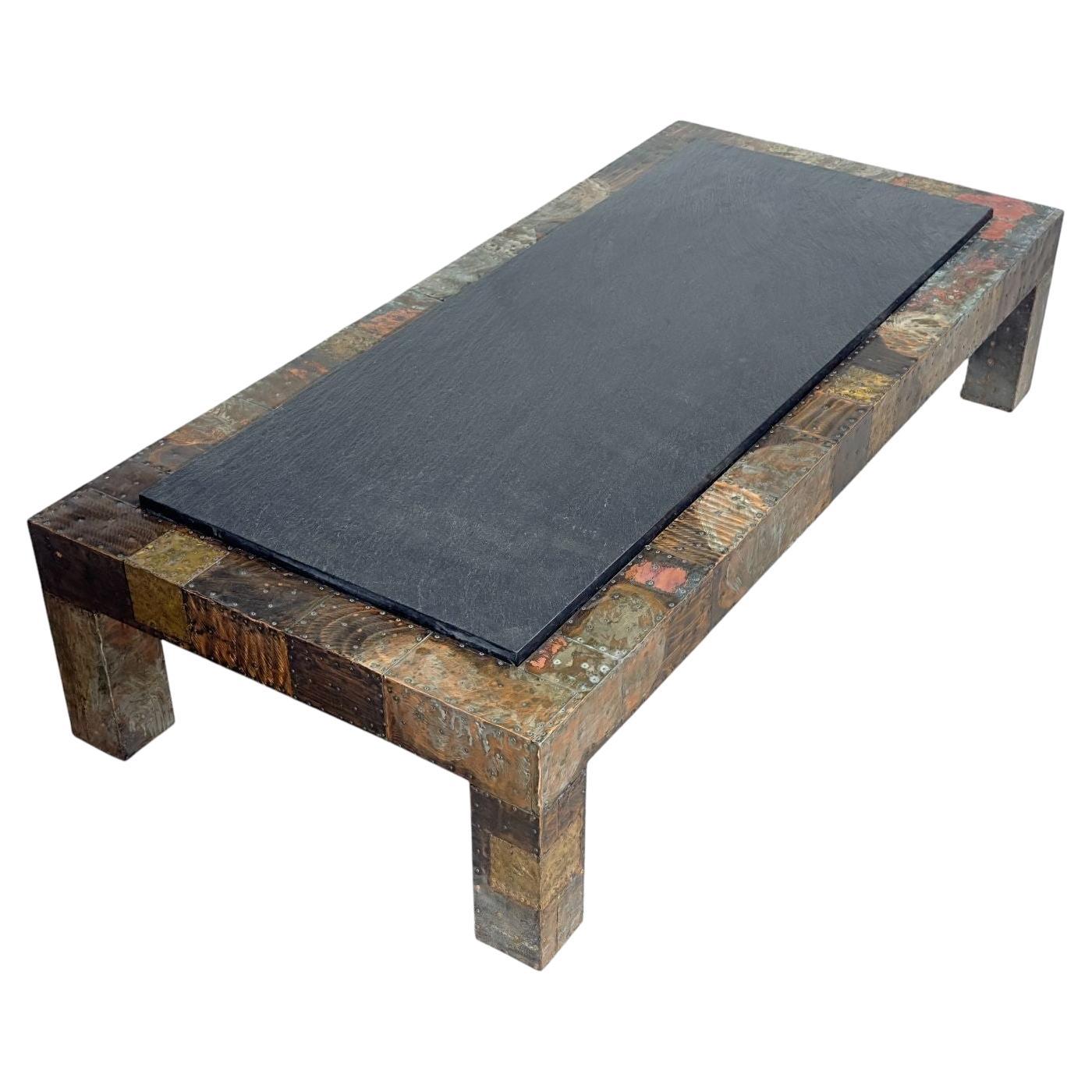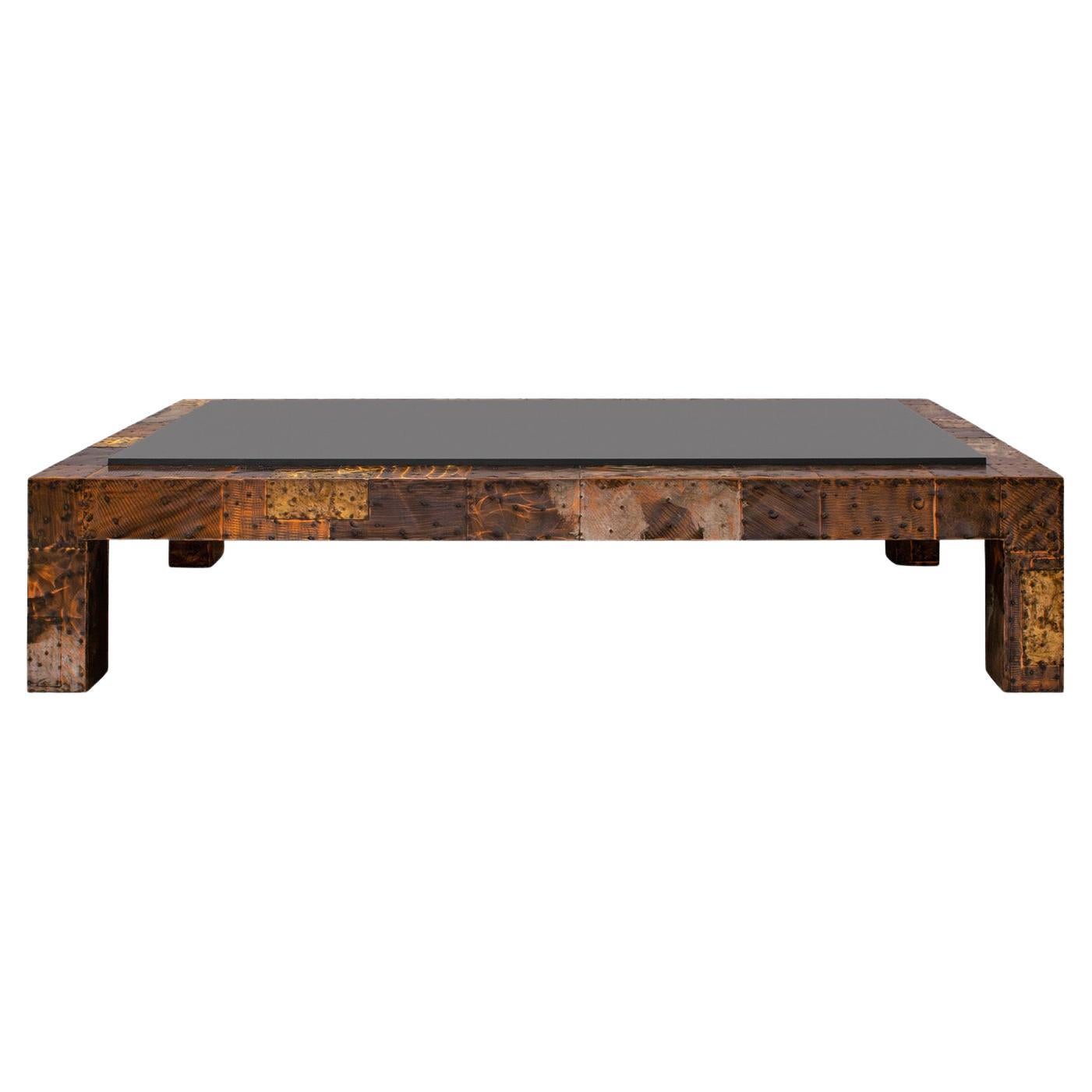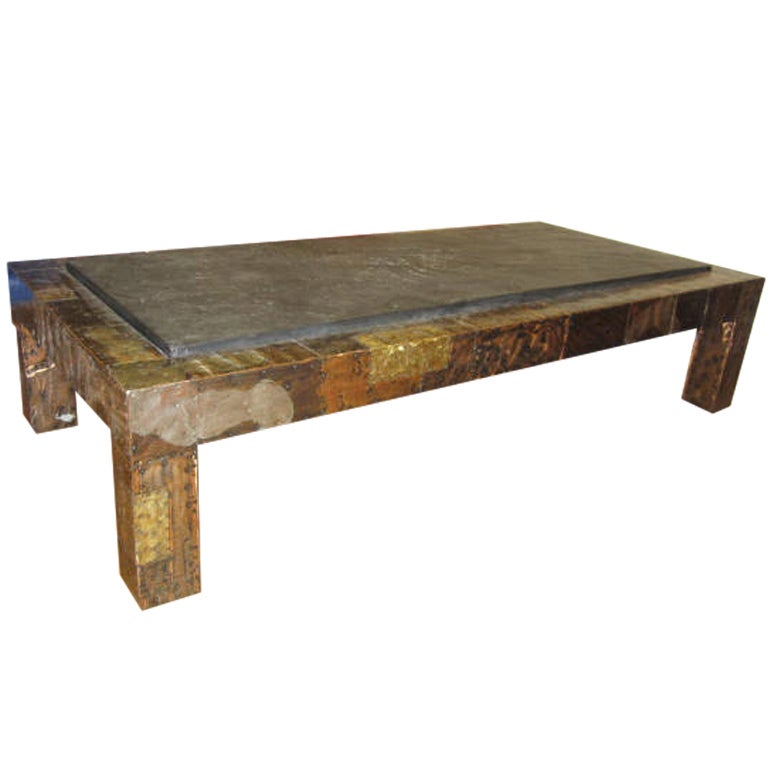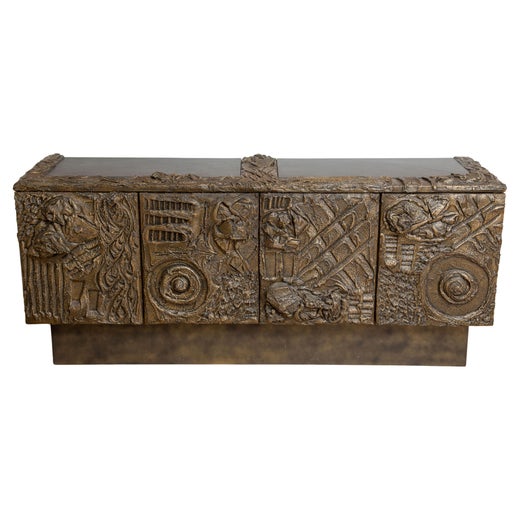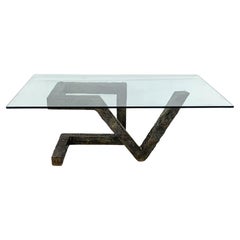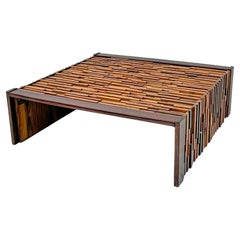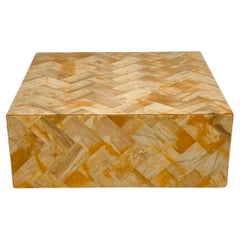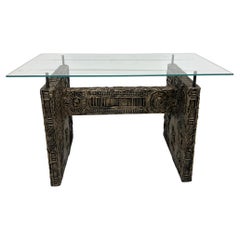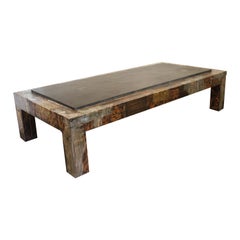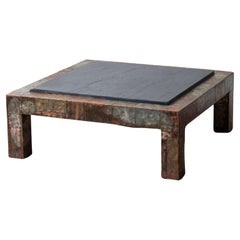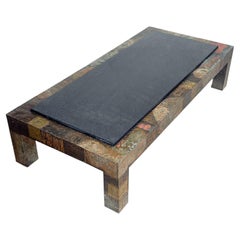Paul Evans Patchwork Coffee Table With Slate Top, 1970's
About the Item
- Creator:Paul Evans (Designer)
- Design:
- Dimensions:Height: 16.25 in (41.28 cm)Width: 68 in (172.72 cm)Depth: 32 in (81.28 cm)
- Style:Brutalist (In the Style Of)
- Materials and Techniques:
- Place of Origin:
- Period:
- Date of Manufacture:C. 1970
- Condition:Wear consistent with age and use. There is some chipping along the sides of the slate top insert. This is not noticeable under casual observation and we would consider this wear consistent with age and use. Top still fits snug into recess.
- Seller Location:Culver City, CA
- Reference Number:1stDibs: LU1139241741072
Paul Evans
A designer and sculptor, Paul Evans was a wild card of late 20th century modernism. A leading light of the American Studio Furniture movement, Evans’s sideboards, credenzas, coffee tables and other work manifests a singular aesthetic sense, as well as a seemingly contradictory appreciation for both folk art forms and for new materials and technologies.
Evans’s primary material was metal, not wood, which was favored by his fellow studio designers, and Bucks County, Pennsylvania, neighbors George Nakashima and Phillip Lloyd Powell. He trained in metallurgy and studied at the Cranbrook Academy of Art, the famed crucible of modern design and art in suburban Detroit. For a time early in his career, Evans also worked at Sturbridge Village, a historical “living museum” in Massachusetts, where he gave demonstrations as a costumed silversmith.
Evans’s earliest work unites these influences. The pieces that made his reputation are known as “sculpted-front” cabinets: wood cases faced with box-like high-relief patinated steel mounts laid out in a grid pattern. Each mount contains a metal emblem, or glyph, and the effect is that of a brawny quilt.
Evans’s later work falls into three distinct style groups. His sculpted-bronze pieces, begun in the mid-1960s, show Evans at his most expressive. He employed a technique in which resin is hand-shaped, and later sprayed with a metal coating, allowing for artistic nuance in the making of chairs, tables and case pieces. Later in the decade and into the 1970s, Evans produced his Argente series for celebrated manufacturer Directional (a brand known to vintage mid-century modern furniture collectors everywhere): consoles and other furniture forms that feature aluminum and pigment-infused metal surfaces welded into abstract organic forms and patterns.
Last, Evans's Cityscape design series — a milestone in the history of brutalist design — meshed perfectly with the sleek, “high tech” sensibility of the later ’70s. Evans constructed boxy forms and faced them with irregular mosaic patterns that mixed rectangular plaques of chromed steel, bronze or burlwood veneer. These, like all of Paul Evans’s designs, are both useful and eye-catching. But their appeal has another, more visceral quality: these pieces have clearly been touched by an artist’s hand.
Find a collection of authentic Paul Evans furniture today on 1stDibs.
- ShippingRetrieving quote...Shipping from: Canoga Park, CA
- Return Policy
More From This Seller
View AllVintage 1960s Brutalist Dining Room Tables
Metal, Bronze
Vintage 1970s Brazilian Mid-Century Modern Coffee and Cocktail Tables
Steel
Vintage 1970s Hollywood Regency Coffee and Cocktail Tables
Onyx
Vintage 1960s American Brutalist Dining Room Tables
Steel
Vintage 1920s French Art Deco Coffee and Cocktail Tables
Shagreen, Macassar, Shagreen Stingray
Vintage 1940s American Mid-Century Modern Coffee and Cocktail Tables
Mahogany
You May Also Like
Vintage 1970s American Brutalist Coffee and Cocktail Tables
Slate, Copper
Mid-20th Century American Brutalist Coffee and Cocktail Tables
Slate, Copper, Pewter
Vintage 1970s American Mid-Century Modern Coffee and Cocktail Tables
Slate, Copper
Vintage 1970s American Mid-Century Modern Coffee and Cocktail Tables
Copper, Steel, Pewter
Vintage 1960s American Brutalist Coffee and Cocktail Tables
Bronze, Copper, Steel, Pewter
Vintage 1970s American Mid-Century Modern Coffee and Cocktail Tables
Slate, Copper
